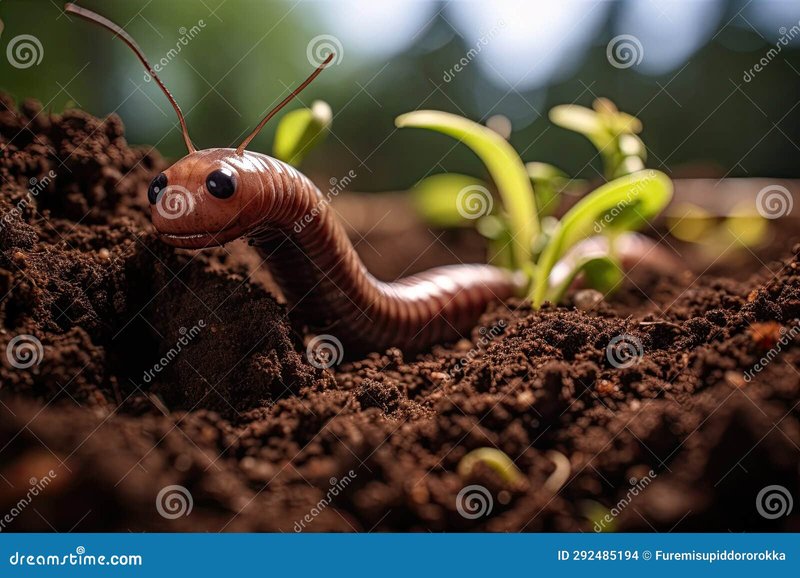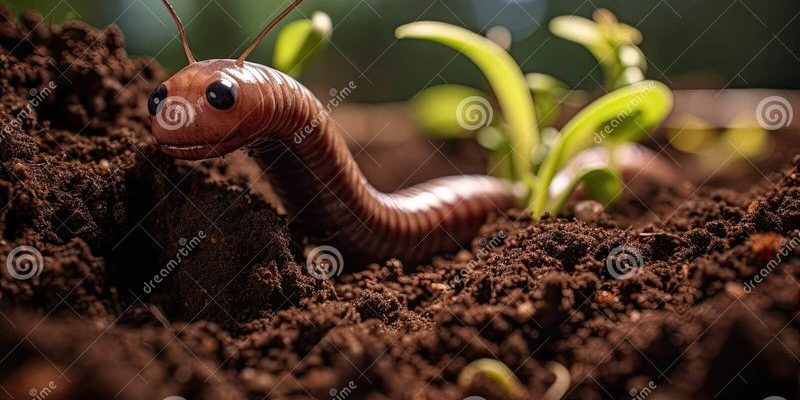
Soil erosion is a major issue, often caused by factors like heavy rain, wind, and poor land management. The good news is, earthworms can significantly help mitigate this problem. By aerating and enriching the soil, these creatures help to create a more resilient ecosystem. If you’re curious to learn how these slimy heroes work to prevent soil erosion and why their existence matters so much, keep reading!
What Are Earthworms?
Earthworms are soft-bodied invertebrates that inhabit soil environments all around the world. They’re often referred to as “night crawlers” because they’re more active at night, surfacing to feed on decomposing organic matter. But here’s the interesting part: their bodies are made up of segments, and they have no bones! Instead, they rely on a type of hydraulic system that allows them to move through the soil effortlessly.
When earthworms eat, they break down organic material, like dead leaves and plants. This process releases nutrients back into the soil, making it rich and fertile. So, these little guys aren’t just hanging out underground; they’re busy working to improve soil health every day!
How Earthworms Prevent Soil Erosion
Soil erosion happens when the top layer of soil is worn away by wind, water, or human activity. This can lead to nutrient loss, decreased soil fertility, and even loss of land. But how do earthworms help prevent this? Well, their burrowing habits create pathways in the soil, which does several things.
First, these tunnels allow water to penetrate deeper into the ground instead of running off the surface. This is super important because it helps keep the soil moist and reduces the risk of flooding. Less surface runoff means less erosion overall.
Second, earthworm activity encourages the growth of plants. When plants take root, they stabilize the soil with their roots, providing an additional layer of protection against erosion. Essentially, when earthworms do their job, they’re also helping plants do theirs!
The Role of Organic Matter
One of the key components of healthy soil is organic matter, and earthworms are like the recycling team of the underground world. They consume dead leaves, decaying plants, and even animal waste, breaking it down into smaller pieces. This not only enriches the soil but also improves its structure.
Good soil structure is vital for erosion prevention. When soil is well-structured, it holds together better, making it less likely to wash away during a rainstorm. Additionally, earthworms produce casts (or worm poop), which are packed with nutrients. These nutrient-rich casts help promote healthy plant growth, further anchoring soil in place.
You might be wondering how to encourage these wiggly friends in your garden. Well, one simple way is to add organic material like compost or mulch. This will attract earthworms and promote their activity in your soil!
Earthworm Species That Help With Soil Erosion
Not all earthworm species are created equal when it comes to soil erosion prevention. Let’s look at some of the most beneficial ones:
- Lumbricus terrestris (Common Earthworm): Known for their large size, they burrow deep into the ground, improving aeration and drainage.
- Allolobophora chlorotica (Green Earthworm): These smaller earthworms live closer to the surface, breaking down organic matter and enhancing nutrient cycling.
- Eisenia fetida (Red Wiggler): Often used in composting, these worms are great at breaking down organic waste into nutrient-rich soil.
Fostering diverse earthworm species in your garden can create a thriving ecosystem that contributes to soil health and erosion prevention. Each species plays a unique role in making the soil more resilient against erosion.
How to Attract Earthworms to Your Soil
If you want to harness the power of earthworms for soil erosion prevention, attracting them to your garden is key. Here are some effective ways to do just that:
- Compost: Creating a compost pile invites earthworms into your garden. They love the decomposing material and will thrive in nutrient-rich compost.
- Avoid Chemicals: Pesticides and chemical fertilizers can harm earthworm populations. Opt for organic gardening methods instead.
- Moisture: Earthworms thrive in damp environments, so keep your soil reasonably moist without overwatering.
By following these tips, you’ll create a welcoming environment for earthworms, which, in turn, helps prevent soil erosion and enhances overall soil health.
The Bigger Picture: Why Soil Erosion Matters
Understanding how earthworms help prevent soil erosion leads us to a greater awareness of why soil health is crucial. Erosion can lead to serious issues like decreased agricultural productivity, loss of habitats, and even water pollution. When soil is eroded, the nutrients are washed away, making it harder for plants to grow.
Soil erosion doesn’t just affect our gardens; it has ripple effects on entire ecosystems, impacting wildlife and water quality. If we want to sustain our environment for future generations, nurturing organisms like earthworms is essential.
In the grand scheme of things, earthworms are unsung heroes in the fight against soil erosion. They work tirelessly beneath our feet, creating tunnels that improve soil structure, enhance nutrient cycling, and even support plant growth. By fostering a healthy earthworm community, we can better protect our soil from erosion and contribute to a healthier ecosystem.
So, next time you see an earthworm, remember it’s not just a slimy creature; it’s a valuable ally in soil conservation. By understanding and appreciating their role, we can take steps to protect both our gardens and the larger environment. Let’s give earthworms the credit they deserve and work towards a more sustainable future!

